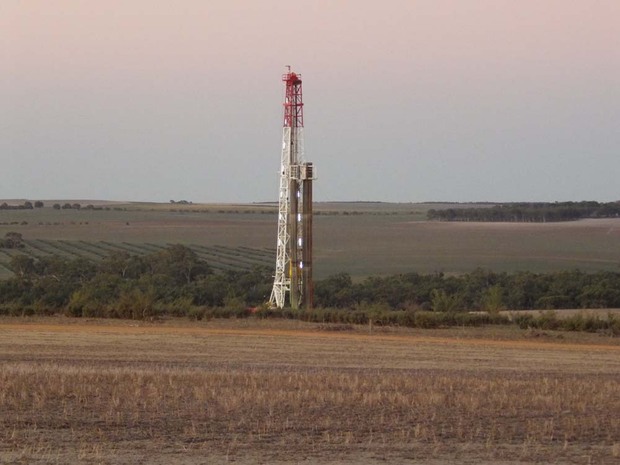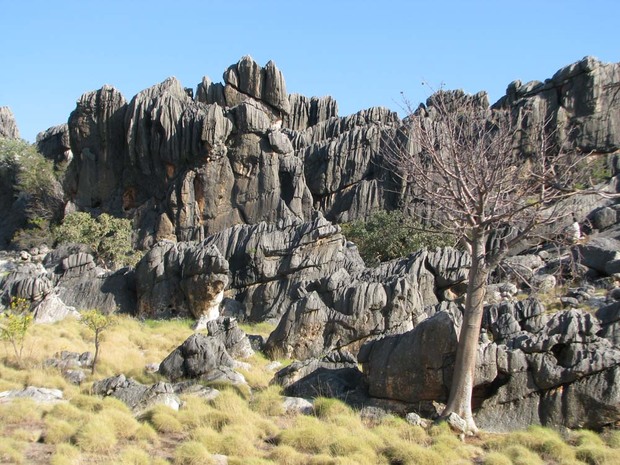Western Australia and its adjacent offshore areas are divided into graticular blocks, each five minutes of latitude by five minutes’ longitude. These graticules constitute the building blocks for exploration and production titles. The specific petroleum titles are described below.
Petroleum Exploration Permits

The prime title for exploration under State petroleum legislation is the Petroleum Exploration Permit. These permits are available through a periodic release of vacant acreage in a work program-based competitive bid process. The exception to the periodic release process is applications for Special Prospecting Authorities with an Acreage Option.
Petroleum Exploration Permits are awarded to bidding applicants whose work programs undertake the widest assessment of an area’s petroleum potential. Other focus areas include sound resource management, safety and environmental principles, and the ability to satisfy the criteria for assessment guidelines.
All bids are regarded as strictly confidential. However, following an applicant party’s acceptance of the exploration permit offer (Petroleum (Submerged Lands) Act 1982), or upon entering the native title future act process as the applicant deemed most suitable for the award (Petroleum and Geothermal Energy Resources Act 1967), certain information (other than details of applicants’ financial and technical abilities and interpretive data) may be made publicly available.
An important point to note is that the petroleum legislation recognises only individuals or corporate bodies. Permits or other titles cannot be granted to a Joint Venture name. Where Petroleum Exploration Permits are made by a consortium, it is usually a requirement to provide a positive indication, such as a heads of agreement, that a joint operating agreement will be forthcoming.
Permits are granted on the basis of a guarantee to complete the first two years of work without variation. This is also known as the dry hole system and means the permit holder is required to fulfil the nominated commitment for those initial years, regardless of the circumstances, excepting force majeure. Force majeure refers to any uncontrollable event that interrupts the expected course of events.
The initial term of a Petroleum Exploration Permit is six years. The permits can only be renewed for two further periods of five years, with 50 per cent relinquishment of the area at the end of each term (for a total of 16 years). Permits are granted subject to specific minimum work commitments that must be met each year or earlier. Permits in the State area must complete the first two years of the work program before they can be surrendered. Find out more about a Petroleum Exploration Permit (page 83).
Drilling Reservations
Generally, petroleum exploration is carried out by way of Petroleum Exploration Permits but it can also be undertaken under a Drilling Reservation. A Drilling Reservation is a prospect-size title granted under the Petroleum and Geothermal Energy Resources Act 1967 that allows drilling and other exploratory operations, such as seismic surveying. Drilling Reservations are granted for a period up to three years (at the discretion of the Minister for Mines and Petroleum) and only where a drillable target has already been identified. Drilling Reservations are not available under the Petroleum (Submerged Lands) Act 1982.
Special Prospecting Authorities with an Acreage Option

Special Prospecting Authorities with an Acreage Option titles are granted to enable geophysical or geochemical surveys (or other operational activities other than the making of a well) to be undertaken in areas not currently under title, the subject of competing applications, or identified by the Department of Mines, Industry Regulation and Safety for a future Acreage Release.
They are intended as a means of preliminary assessment of the prospectivity of areas where little or no exploration has been undertaken prior to a more permanent exploration title being applied for. These authorities are restricted in time to a maximum six months for the field work and generally a further six months, to enable the option to be exercised. Drilling is not to be undertaken under a Special Prospecting Authorities with an Acreage Option title.
The approval of a Special Prospecting Authorities with an Acreage Option is at the Minister’s discretion, as some applications may not be regarded as appropriate. The Acreage Option only extends to the right to apply for an Exploration Permit or Drilling Reservation and does not infer any obligation on the part of the Minister to grant a title.
Once the Special Prospecting Authorities with an Acreage Option period has expired, the data generated from the survey is to be made publicly available. These Authorities are not available under the Petroleum (Submerged Lands) Act 1982. For more information about Special Prospecting Authorities with an Acreage Option (page 86).
Access Authorities
An Access Authority enables the holder of a permit, drilling reservation, lease, licence or SPAor Special Prospecting Authority to extend limited exploration activities (usually seismic lines tying into some other known control) in vacant acreage or acreage held under another party’s title.
Where access is required in the above circumstance, the permit holder needs to be given the opportunity to comment on, but not veto, the proposed access. To hasten the approval process, it is advisable to seek the consent of the other permit holder’s consent and include this consent with the application.
Access Authorities (page 86) are usually limited in time to the period in which the exploration activity can be completed.
Declaration of Location
Upon discovery of petroleum, a permit holder permittee must notify and provide details to the authorities, giving details of the discovery. Hydrocarbons have to be recovered to surface before a location can be declared. Before applying for a Retention Lease or Production Licence, the permittee must identify the block or blocks that cover the discovery area of the discovery.
Where a location is declared over a discovery, the blocks remain under the exploration title and the permittee may undertake further exploration and/or appraisal activities within the location to determine more accurately the extent of the discovery. Read more about a Declaration of Location (page 85).
Registered holder’s obligations
All registered holders must undertake operations according to good oilfield practice, maintaining safety and preventing the escape of petroleum into the environment. The operations must also not unnecessarily interfere with the surface of land, any improvements or other persons’ lawful activities. In order to retain the title, conditions of work and compliance with directions must be met; data and reports submitted; and annual fees paid.
| Summary of Petroleum Titles | ||||
|---|---|---|---|---|
| Title | Term | Area | Rights | Obligations |
|
Petroleum Exploration Permit (EP) |
Original 6-year term. Renewal 5-year term, twice only. |
Number of blocks in release area. |
To explore for petroleum. To covert any discovery made to a Production Licence or if presently uneconomic a Retention Lease. |
|
|
Petroleum Drilling Reservation (DR) (PGERA67 only) |
Up to a 3-year term (plus extension period of one year).
|
Corresponds to potential size of prospect, in Blocks. |
|
|
